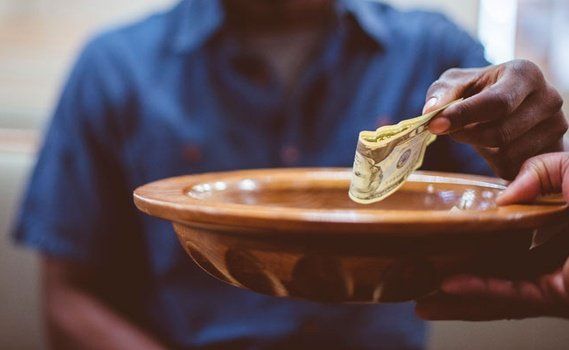We ARE CU
ATTEND With Us
FAITH IN Action
Request Prayer

Resources

GIVE Online

Address
100 West Avenue G
Nolanville Texas 76559
Contact Us
254-698-0313
inquire@cuccan.org
We ARE Christ Centered and People Building
Central Union aspires daily to be like the New Testament church that belongs to our Lord Jesus Christ. Our life-giving fellowship is marked by the presence of God, activating us to impact others. We’re gathering in-person and online.
Understanding Repentance
CU Church Blog | Missionary Warrior
Understanding Repentance

What is Repentance?
The word repentance in the Bible literally means “the act of changing one’s mind.” True biblical repentance goes beyond remorse, regret, or feeling bad about one’s sin. It involves more than merely turning away from sin.
To repent means to rearrange your entire way of thinking, feeling and being to forsake that which is wrong. Genuine repentance is crucial to the success of restoring a relationship with Christ.
Repentance involves three things:
- A Recognition of our sin
- A Renunciation of our sin
- A Returning to God.
Repentance in the Old Testament
Repentance in the Old Testament was expressed through the
spiritual expression of Sackcloth and ashes. It was used in Old Testament times as a symbol of debasement, mourning, and/or repentance. Someone wanting to show his repentant heart would often wear sackcloth, sit in ashes, and put ashes on top of his head.
Very simply, sackcloth and ashes were used as an outward sign of one’s inward condition. Such a symbol made one’s change of heart visible and demonstrated the sincerity of one’s grief and/or repentance.
Repentance in the New Testament
Three Greek words used in the New Testament help us understand the full meaning
of repentance in the Bible.
1. The first is the verb "metamelomai", which denotes a change of mind that produces regret or even remorse for wrongs done, but not necessarily a change of heart and action. This word is used in Matthew 27:3 to describe the guilt Judas felt over betraying Jesus.
2. The second verb, "metanoeo", means “to change one’s mind and purpose, as the result of after knowledge.”
3. The third word is a related noun, "metanoia", denote true biblical repentance, which is characterized by five elements below:
Why Do We Repent?
There are five reasons why we Repent:
1. Repentance Gives Us Spiritual Restoration
Repentance lets God restore, forgive and purify us
2. Repentance Keeps Us Humble
Repentance helps us to learn to agree with the truth of God’s standards of righteousness and sin. Pride is the opposite of humility and is blinding to the Christian. When we take on the spiritual disposition of humility, we are basically showing and agreeing with the truths of God.
3. Repentance Drives the enemy (devil) away
The Bible tells us, “Submit yourselves to God. Resist the devil, and he will flee from you” (James 4:7). In this verse, submission to God means washing our hands and purifying our hearts from sin and double mindedness (James 4:8). This verse also means by drawing closer to God we are also pushing away the devil and the sin in our lives.
4. Repentance Frees us from the torment of sin
Because Jesus is our great high priest who is always interceding for us before God (Hebrews 4:14; 7:25), we can “approach God’s throne of grace with confidence, so that we may receive mercy and find grace to help us in our time of need” (Hebrews 4:16). Only the grace and mercy of God can eradicate the foothold of sin in our lives.
5. Repentance leads us to that Abundant life with Jesus
Sin will lead to spiritual death. God’s Word tells us plainly that “the wages of sin is death” (Romans 6:23) and Jesus said, “unless you repent, you too will all perish” (Luke 13:3). On the contrary, repentance leads to life (Acts 11:18) and salvation (2 Corinthians 7:10).
When Do We Repent?
Jesus calls people who have yet to believe in Him (Matthew 4:17) and Christians to repent when they have fallen away from Him. When we find ourselves in sin, we need to repent. Godly sorrow also plays a role in helping us understand the need to repent. This is the spiritual guilt and let down that moves us to change or do better.
(2 Corinthians 7:10)
1 John 1:9
“If we confess our sins, he is faithful and just to forgive us our sins, and to cleanse us from all unrighteousness.”
The Six Principles of Repentance
Check out these 6 key principles for repentance.
1. Confession
Repentant people are willing to confess all their sins, not just the sins that got them in trouble. A house isn’t clean until you open every closet and sweep every corner. People who truly desire to be clean are completely honest about their lives. No more secrets.
2. Face the Pain.
Repentant people face the pain that their sin caused others. They invite the victims of their sin (anyone hurt by their actions) to express the intensity of emotions that they feel—anger, hurt, sorrow, and disappointment. Repentant people do not give excuses or shift blame. They made the choice to hurt others, and they must take full responsibility for their behavior.
3. Ask or Seek Forgiveness
Repentant people ask for forgiveness from those they hurt. They realize that they can never completely “pay off” the debt they owe their victims. Repentant people don’t pressure others to say “I forgive you.” Forgiveness is a journey, and the other person needs time to deal with the hurt before they can forgive. All that penitent people can do is admit their indebtedness and humbly request the undeserved gift of forgiveness.
4. Remain Accountable.
Repentant people remain accountable to a small group of mature Christians. They gather a group of friends around themselves who hold them accountable to a plan for clean living. They invite the group to question them about their behaviors. And they follow the group’s recommendations regarding how to avoid temptation.
5. Accept Your Limitations or Consequences.
Repentant people accept their limitations. They realize that the consequences of their sin (including the distrust) will last a long time, perhaps the rest of their lives. They understand that they may never enjoy the same freedom that other people enjoy.
Sex offenders or child molesters, for example, should never be alone with children. Alcoholics must abstain from drinking. Adulterers must put strict limitations on their time with members of the opposite sex. Jail time may still be given those who repent. That’s the reality of their situation, and they willingly accept their boundaries.
6. Faithful to God-Given Tasks.
Repentant people are faithful to the daily tasks God has given them. We serve a merciful God who delights in giving second chances. God offers repentant people a restored relationship with Him and a new plan for life.
Repent and Heal
Listen to Hosea’s promise to rebellious Israel: “Come, let us return to the Lord. He has torn us to pieces but he will heal us; he has injured us but he will bind up our wounds. After two days he will revive us; on the third day he will restore us, that we may live in his presence.” (Hosea 6:1–2)
The Sin of Omission versus The Sin of Commission
The sin of omission is the result of not doing something God’s Word teaches that we should do. We knew we should have done something good, but refused. A
biblical
example of a sin of omission
is the story of the Good Samaritan (Luke 10:30-37). The first two men (Priest, Levite) passed the man by and knew better, but failed to act.
(James 4:17, Matthew 25:31-46, Romans 7:14-20)
The sin of commission is to take action to commit, whether in thought, word, or deed. It can be intentional or unintentional.
Some examples of this are the following:
- Humanity’s first sin was a sin of commission. God forbade the eating of a certain fruit (Genesis 3:6).
- When King David committed adultery and then had Uriah killed to cover it up, both were sins of commission (2 Samuel 11).
- Abraham lies to Pharoah concerning Sarah was a sin of commission (Genesis 20:2).
- Moses killing an Egyptian man was a sin of commission (Exodus 2:11-12)
(Numbers 15:22-24, Hebrews 9:7, Genesis 3:6)
Private Sin versus Public Sin
No matter if done in private or in public sin is sin. Private sin is a transgression only known to you. Public sin is a transgression that is known to you and others. It can be confusing when focusing on the two but
The Repentance Process
1. Realize that you are in a sinful state (2 Cor. 7:10)
2. Go to God to make it right in a prayer of repentance and forgiveness (1 John 1:9)
3. Come and confess to the church that you have sinned and need strength (James 5:12-16)
4. The above action can be done whether the sin is public or private. It is a must if we have sinned in public.
Fuel for the Faith
Repentance is not a burden or a curse. It is a gift from an awesome God who knew that His people needed a way back to Him when down in sin. Let's take some time today to thank and give praise for the cleansing and reconnecting power of repentance. If you are away from God in sin now, don't wait until Sunday to make it right. Let's start that process today by going to God in a prayer of repentance and then we have the blessing to bring it on Sunday for prayer and strength from the saints!
Stay Rooted in the King!
Bro.Keir S. Brady
Minister of the Central Union Church of Christ
Missionary Warrior





SUNDAY MORNINGS @ 10:30AM
WEDNESDAY NIGHT @ 7PM
100 West Avenue Nolanville, TX - Get Directions

Central Union aspires daily to be like the New Testament church that belongs to our Lord Jesus Christ. Our life-giving fellowship is marked by the presence of God, activating us to impact others.





